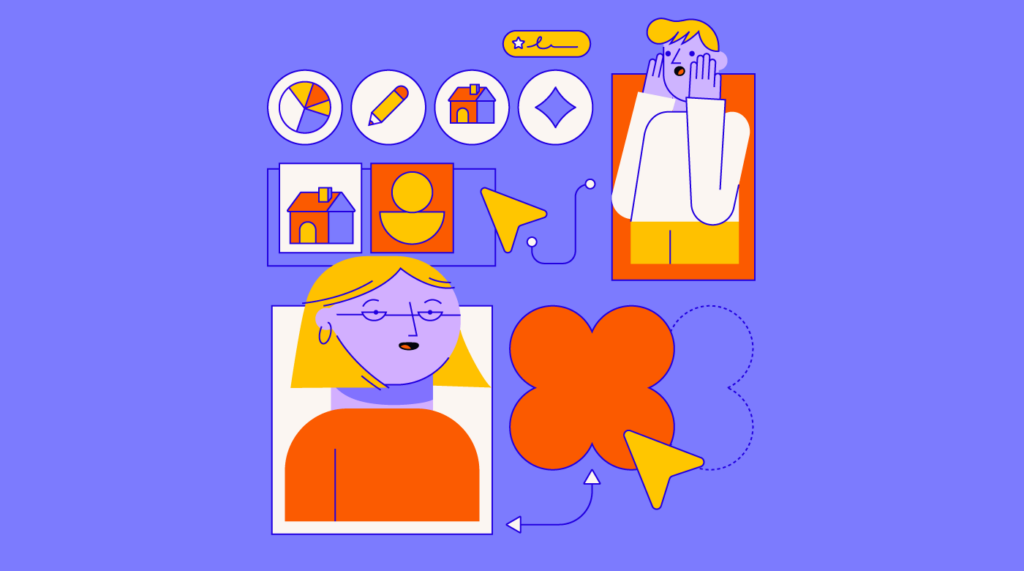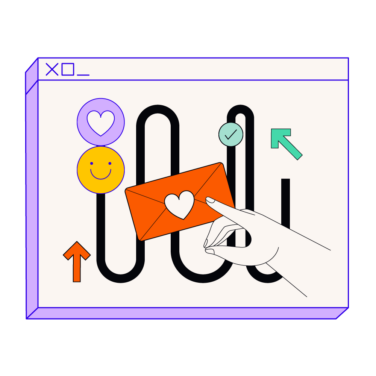Personalization has long been a focus for marketers, however, this concept really applies across an entire “customer” journey.
Customer is in quotes because a customer can be many things including consumers, businesses, patients, employees, partners, etc. A customer is really anyone you provide something to: product, service, employment, revenue share, etc.
In this broader sense then, personalization should be top of mind for the entire business.
What Is personalization?
My definition of personalization is being able to deliver the right information to the right person in the right way at the right time. This applies to individuals as well as organizations. I love to talk about “Customer Intimacy” and being able to personalize the experience for every customer is the pinnacle of reaching true customer intimacy.
You’ve likely heard customers say “we’re different” or “our requirements are unique” to which you may snicker to yourself, but the reality is they are right. All customers are like snowflakes. No matter how similar in industry, size, complexity, there will always be uniqueness in culture, leadership, maturity, etc. Every customer should be considered in light of their own situation. However, delivering a customer experience that is unique to every customer is not easy.
Enter the linkage between technology innovations and data! Specifically, leveraging AI for personalization. It is now possible to leverage the data you’ve been collecting on your customers for years to understand how past behavior can translate into predicting future behavior. This in turn allows you to get ahead of the likely outcomes and take action to influence the direction.
Historically, data lived within siloes and was rarely shared. Technology has made it so much easier to centralize and streamline reporting and visibility across the organization. If companies invest in new technologies, they can bring together all of their data to leverage it for making strategic directions that will move the needle on revenue, growth and differentiation in the market. In addition, it allows for personalization at scale, which was nearly impossible before.
What Are The Benefits Of Personalization?
Personalizing both customer and employee experiences offers a range of benefits, contributing to increased satisfaction, engagement, loyalty, and productivity. Here are some specific benefits:
- Enhanced Satisfaction: Personalization meets individual needs and preferences, leading to higher levels of satisfaction among both customers and employees. Tailoring experiences shows that their interests and concerns are valued, fostering positive sentiments toward the organization.
- Improved Engagement: Customized experiences capture attention and maintain interest better than generic ones. Personalized content, recommendations, and interactions are more likely to resonate with individuals, driving higher levels of engagement with products, services, training, or tasks.
- Increased Loyalty: By delivering experiences that are uniquely relevant and valuable to each individual, organizations can cultivate stronger emotional connections. This, in turn, fosters loyalty among both customers and employees, encouraging repeat business and longer tenures.
- Higher Conversion Rates: Personalized marketing messages and product recommendations are more effective in driving conversions. By presenting offerings that align closely with individual preferences and needs, organizations can increase the likelihood of customers making purchases or taking desired actions.
- Greater Retention: Personalization helps reduce churn by addressing pain points, resolving issues proactively, and anticipating future needs. By consistently delivering experiences tailored to individual preferences, organizations can encourage customers and employees to stay with them for the long term.
- Efficiency and Productivity: Tailoring experiences streamlines interactions and processes, saving time and effort for both customers and employees. By presenting relevant information, suggestions, and resources upfront, organizations can facilitate faster decision-making and task completion.
- Improved Insights and Decision-Making: Personalization relies on data and analytics to understand individual preferences and behaviors. By collecting and analyzing this data effectively, organizations can gain deeper insights into customer and employee needs, preferences, and trends, informing more informed decision-making and strategy development.
- Competitive Advantage: Organizations that excel at personalization can differentiate themselves from competitors by offering superior experiences. In a crowded marketplace, personalized experiences become a key differentiator that attracts and retains customers and top talent.
Overall, personalizing both customer and employee experiences contributes to building stronger relationships, driving business growth, and fostering a culture of excellence and innovation within organizations.
How Do Companies Personalize At Scale?
Personalization in the context of customer and employee experience refers to the customization of interactions, products, services, and communications to meet the individual preferences, needs, and characteristics of each customer or employee.
It involves leveraging data, technology, and insights to tailor experiences in a way that makes them more relevant, engaging, and valuable to the individual.
Let’s look at some examples of how personalization relates to both customer and employee experiences.
Customer Experience (CX):
- Tailored Recommendations: Providing personalized product or service recommendations based on past purchases, browsing history, demographics, and other relevant data points.
- Customized Communication: Sending personalized messages, offers, and promotions through various channels such as email, social media, and mobile apps, taking into account the customer's preferences and behaviors.
- Adaptive Website/App Experience: Customizing the website or app interface, content, and navigation based on user preferences and behavior, such as showing relevant content or suggesting next steps.
- Individualized Support: Offering personalized customer support experiences by anticipating needs, understanding past interactions, and providing relevant solutions or assistance.
Employee Experience (EX):
- Personalized Learning and Development: Tailoring training and development programs to employees' skills, interests, career goals, and learning preferences.
- Flexible Work Arrangements: Offering personalized work arrangements such as flexible schedules, remote work options, or job rotations to accommodate individual needs and preferences.
- Recognition and Rewards: Recognizing and rewarding employees in a personalized manner based on their contributions, performance, and preferences.
- Career Pathing: Providing personalized career development opportunities, mentorship, and guidance based on employees' aspirations, strengths, and areas for growth.
Summary
Overall, personalization in both customer and employee experience helps foster stronger relationships, increases engagement and satisfaction, and ultimately drives loyalty, productivity and revenue growth.


